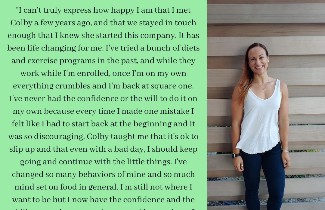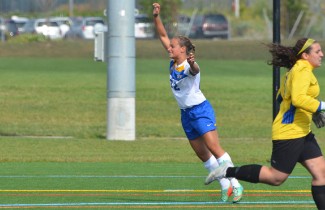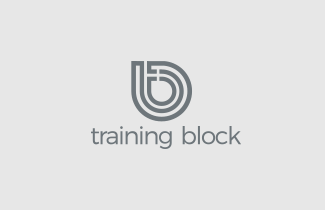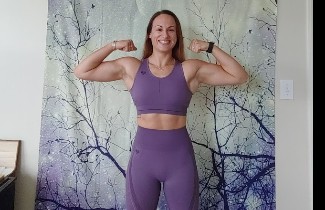





Hi there! It's so nice to meet you, my name is Colby Thibault. I'm a former collegiate soccer player who set out on a personal and professional journey to help other former athletes transition out of athlete mindset into everyday life. I started my journey at Johnson & Wales University in Providence, RI where I received a bachelors degree in Culinary Nutrition. Before this could happen though, I went through my first 2 years of school in strictly Culinary Arts classes/labs and ended up spending ~5 years in the back of restaurants perfecting my chef skills. The last 2 years of college focused more on the nutrition side of things and near perfect grades allowed me to apply for one of the most competitive dietetic internships in the country...Yale! I hung up my soccer cleats, accepted my graduation cap, and moved down to CT the fall after graduating college to push my nutrition knowledge to the next step. Yale's dietetic internship was a year long program that once completed allowed me to register and sit for my national board exam. Passing this granted me with the title of Registered Dietitian! I worked in the clinical space at a hospital for a little over a year and a half before I finally realized that I wasn't fulfilled in this position and I wanted more. I first pursued my education in becoming a Certified Personal Trainer and worked part-time at a local gym while I finished my contract at the hospital. Then I quit both jobs and filed for my business's LLC! Triad Performance & Nutrition, LLC was born and I was finally putting ALL three of my unique abilities to good use helping clients virtually find sustainable habits. I narrowed my focus/niche to specifically former athletes (high school and on) as that was the 1 area that I was an expert in because I had experienced those struggles firsthand. I am continuing to work with clients in both 1-on-1 and group program settings as I grow and scale my business to reach as many former athletes as I can to help educate through this incredibly hard time in life! Cook. Eat. Train.
$0
Interested in more information about working with me? Schedule this FREE phone call so we can chat about what you're struggling with and if we are the right fit for one another!
BOOK NOW
A regular exercise plan is key to our health and w...Read More
A regular exercise plan is key to our health and well-being. Whether at-home or at a gym, all adults benefit from exercising for many reasons. According to the American Heart Association, adults should aim for at least 150 minutes per week of moderate-intensity aerobic activity (or 75 minutes per week high-intensity) and at least two days of muscle strengthening activities such as resistance and/or weights. While there may be distractions and interruptions with at-home exercise -- a child needing help, a pet showing affection, the oven timer telling you dinner is done -- the benefits extend well beyond your workout. For those of you committed to a regular exercise routine or looking to increase your activity, it’s important to remember how nutrition plays a role in your performance and recovery.
Before your next workout, remember these tips for fueling your body adequately before, during, and after exercising. Fuel up with carbohydrates! Making sure your body is fueled and ready for exercise is almost as important as knowing what movements you are doing for your workout. It can be compared to trying to drive a car that has no gasoline… you would not get very far. Our bodies most efficiently use carbohydrates in the form of glycogen for most of our workouts. Ideally, a balanced meal consisting of all three macronutrients -- carbohydrates, proteins, and fat -- should be consumed about two to three hours before exercise. When you get closer to the actual workout itself, the goal should be to consume a small snack about 45 to 60 minutes before exercising. This snack should consist of easy to digest carbs with a small amount of protein. A few examples: rice cakes a piece of fruit, oatmeal, toast with nut butter, a fruit smoothie made with yogurt or milk/milk alternative. If time slips away and you are minutes from the gym and realize you haven’t eaten, a quick granola bar will do the trick! Look for a bar with carbohydrates and protein and try to choose one with less than 10 to 12 grams of added sugar. Being properly fueled beforehand can help you crush a workout.
Re-fuel your body with protein! Post-workout fuel is needed to help rebuild those muscle fibers that were just broken down during exercise. A balanced post-workout snack or meal should ideally be consumed within 30 to 45 minutes after exercise. If this is not possible, have your next meal within two hours post-workout to achieve the optimal metabolic response to support muscle rebuilding and repair. A post-workout snack or meal should consist of carbohydrates and protein, ideally a three to one ratio of carbs to protein, along with some healthy fats. For example, if a post-workout protein shake has 30 grams of protein you should also aim to also have 90 grams of carbohydrates. This will help to maximize proper reconstruction of muscle fibers required to increase strength and muscle mass. A balanced meal including a protein source paired with adequate carbohydrates and some healthy fats is the perfect way to end a workout and to help refuel, rebuild, and recover.
Stay hydrated! All cells in our body require water to survive and perform basic functions. The general adult recommendation is 64 fluid ounces of water, or eight cups, throughout the day to stay hydrated. This recommendation does not include losses from exercise, through sweat and increased breathing rates. In addition to your daily intake, you should have another 8 to 12 fluid ounces about 15 minutes before a workout. If your exercise session lasts more than one hour, drink another 12 fluid ounces. Lastly, when your workout is complete, be sure to drink another 8 to 12 ounces of water 10 to 15 minutes later. In general, water is the best form of hydration before, during, and after exercising. An exception is endurance exercise such as long distance running or playing a sport that includes long periods of activity such as soccer. These forms of exercise often require additional carbohydrates and electrolytes in the form of a sports drink that contain sodium, potassium, and chloride. Sports drinks should mainly be consumed during or after exercise, not throughout the day in place of water. Staying hydrated will ensure that the cells in your body are performing optimally and giving you the energy you need for your workouts and busy life!
Next time you gear up for a workout, be sure to remember these tips: fuel up with carbs, refuel with carbs and protein, and stay hydrated to ensure that your body is at its best when exercising and that it is ready to work again the next day!

0

0

0
you must login
Hi there! It's so nice to meet you, my name is Colby Thibault. I'm a former collegiate soccer player who set out on a personal and professional journey to help other former athletes transition out of athlete mindset into everyday life. I started my journey at Johnson & Wales University in Providence, RI where I received a bachelors degree in Culinary Nutrition. Before this could happen though, I went through my first 2 years of school in strictly Culinary Arts classes/labs and ended up spending ~5 years in the back of restaurants perfecting my chef skills. The last 2 years of college focused more on the nutrition side of things and near perfect grades allowed me to apply for one of the most competitive dietetic internships in the country...Yale! I hung up my soccer cleats, accepted my graduation cap, and moved down to CT the fall after graduating college to push my nutrition knowledge to the next step. Yale's dietetic internship was a year long program that once completed allowed me to register and sit for my national board exam. Passing this granted me with the title of Registered Dietitian! I worked in the clinical space at a hospital for a little over a year and a half before I finally realized that I wasn't fulfilled in this position and I wanted more. I first pursued my education in becoming a Certified Personal Trainer and worked part-time at a local gym while I finished my contract at the hospital. Then I quit both jobs and filed for my business's LLC! Triad Performance & Nutrition, LLC was born and I was finally putting ALL three of my unique abilities to good use helping clients virtually find sustainable habits. I narrowed my focus/niche to specifically former athletes (high school and on) as that was the 1 area that I was an expert in because I had experienced those struggles firsthand. I am continuing to work with clients in both 1-on-1 and group program settings as I grow and scale my business to reach as many former athletes as I can to help educate through this incredibly hard time in life! Cook. Eat. Train.
Training Block was created with a mission to support and empower runners, in order to elevate our sport. We do so by giving runners access to a network of local sport performance providers, who provide runners with the care they need from coaching, physical therapy, massage, strength training, and more. We also give providers an easy way to connect with each other and share articles, videos, and other resources that benefit runners and providers alike. For every service booked through Training Block, we donate 10% of our revenues to Training Block’s Elite Athlete Fund, which sponsors elite runners who do not have professional contracts and need financial support for racing at their highest level.
Copyright © 2024 Training Block. All rights reserved.
Refer a friend and get $5 discount on order!